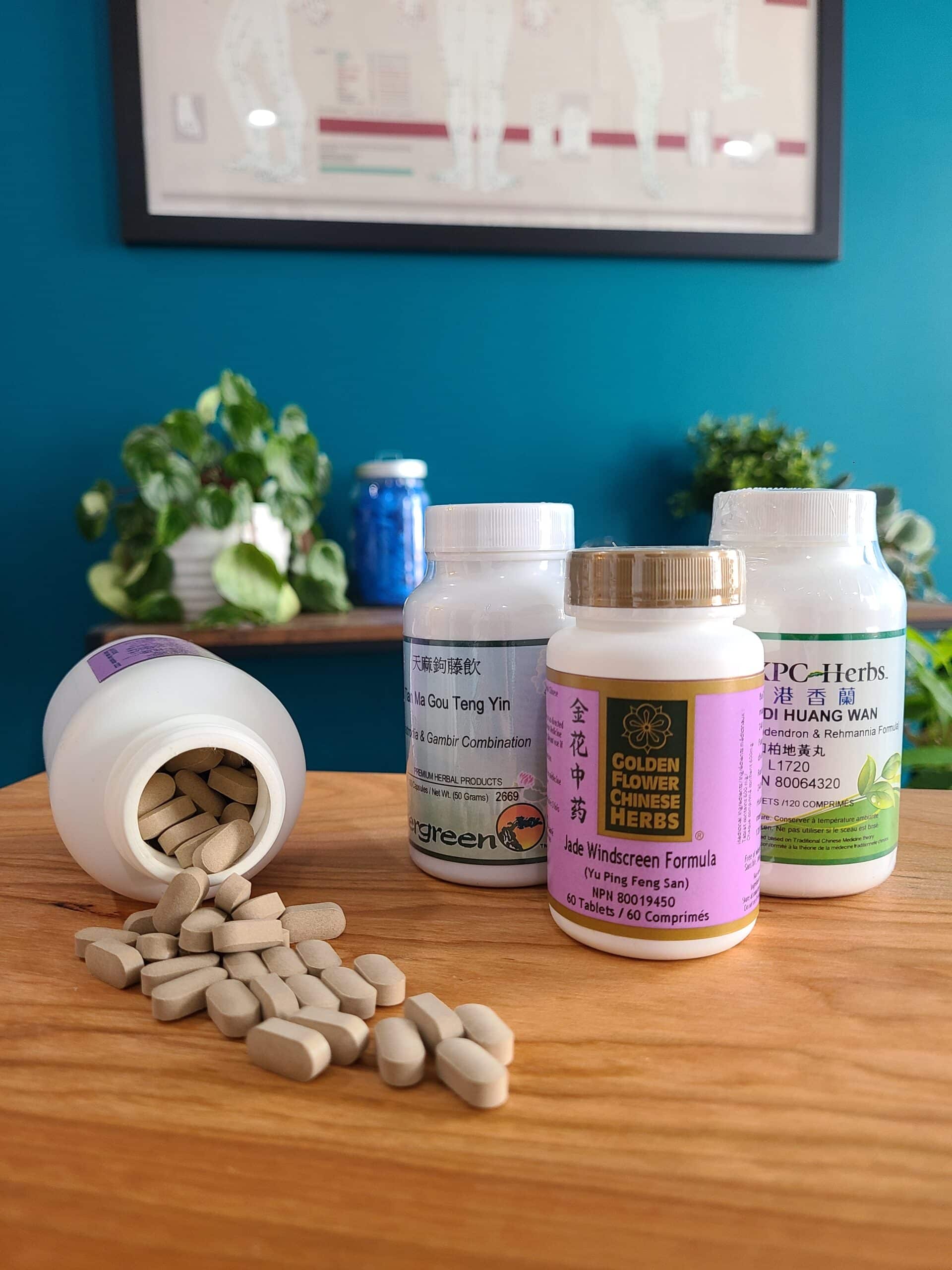Written By: Dr. Wanda Duong, DTCM
For over a thousand years, herbal therapy has been used all over the world to address a range of health concerns. Looking to nature, those who studied Traditional Chinese medicine (TCM), utilized different plant parts to improve and support health.
Many plants and plant parts have unique therapeutic properties that can help support our body’s health and encourage our body’s natural healing abilities. These unique therapeutic properties can be combined to create a balanced herbal formula where the main active ingredients are used to address the primary symptoms, other ingredients to address secondary symptoms, and some ingredients to harmonize and create a balanced formula. TCM herbal formulas are used to address not just symptoms, but the potential root cause of those symptoms. TCM herbal formulas, similar to TCM acupuncture, treat the entire human being by addressing the potential underlying root cause of a symptom(s) and aim to support the body’s own natural ability to sustain health by encouraging certain biochemical reactions to take place.
The therapeutic properties of herbs are often described as their “nature” and their “flavor”. In general, herbs can have a thermal nature that is cold and cool, or hot and warm. This means that herbs which have a cold nature are great to cool the body by combatting heat and toxicity while herbs that are hot in nature are great to balance coldness and warm the body to promote physiological functions. For example, peppermint has a cooling effect and can be found in a formula used to address symptoms of menopause like hot flashes. On the contrary, cinnamon bark is warming and may be found in a formula to warm the body and increase circulation. Another example is including peppermint in an iced tea to help cool the body on a sunny day and in the winter we often find cinnamon in hot ciders to help warm the body. Though the therapeutic properties of these two plant parts are different, they may be found in the same herbal formula, with other ingredients, to create a balanced formula that has a cooling, invigorating, and warming effect.
Herbs will also display a certain flavor profile of sour, bitter, salty, pungent, or sweet and each of these flavor profiles is associated with a therapeutic action. Finally, herbs may have a therapeutic movement influence of directing downward, to address acid reflux for example, or to direct upward to support lifting like in prolapse. All of the properties of a plant part are taken into consideration when herbal formulas are created.
TCM herbal formulas should only be prescribed after a consultation with your TCM practitioner as each herbal formula is specific to address the potential underlying issues causing a symptom or pattern of disease. For example, two individuals with the same diagnosis may be prescribed a different herbal formula because the type of symptom they are experiencing, in addition to
potential underlying root causes, dictates a specific herbal formula that is best for their individual condition. This is similar to two individuals seeking treatment for lower back pain by a physiotherapist, massage therapist, or chiropractic. These two individuals will receive an individualized treatment plan that is specific to which muscle groups are involved, underlying conditions at play, inflammation or structural issues, etc., and both may receive very different treatments even though they both experience low back pain.
Because TCM herbal formulas, similar to pharmaceutical prescriptions, take on a specific role and address very specific underlying issues, it is important to consult with your Active Sports Therapy TCM practitioner to find the best herbal formula to address your condition. You may book a TCM herbal consultation for advisement on a herbal formula that may be appropriate for you, or you may also discuss herbal formulas at your next acupuncture session with your Active Sports Therapy TCM practitioner. Before a herbal formula can be prescribed, the TCM practitioner will ask for a detailed health history including past and current illnesses. They will ask questions related to different body systems and may also inquire into current medication you are taking. This is important because, though herbs are generally quite safe, the TCM practitioner wants to ensure that there will not be any adverse reactions between your pharmaceutical prescription and the herbs, and vice versa. It is also safe to take a herbal formula while also taking a pharmaceutical prescription, though both should be taken at separate times. Continue to take your prescribed medication even if a TCM herbal formula has been prescribed to address a similar symptom. TCM herbal formulas should not be seen as substitutes for medical care, but as a supplement to support holistic health.
TCM herbal formulas are available in different forms, from raw, dried herbs, to powder, to capsules and tablets. They can be used to address current symptoms, or used as a preventative approach for health. TCM herbal formulas can be used to address acute symptoms for 1-2 weeks, such as a cold, or longer standing health problems that are chronic in nature in which case an individual may be advised to take a herbal formula for a few months. Your Active Sports Therapy TCM practitioner will always follow up with you when taking herbal formulas and before prescribing additional formulas. Herbal formulas often have little to no negative side effects as their ingredients are found in nature, most often plant-based. However, it is important that your TCM practitioner is aware of any allergies or sensitivities you may have.
TCM herbal formulas, in addition to TCM acupuncture, are only a small part of the holistic approach we take towards health here at Active Sports Therapy. Together, we are united to give you the best care we can so that you can enjoy all aspects of your daily life.
Book in with Dr. Wanda Duong at AST Willow Park to experience how Traditional Chinese Medicine Formulas can help you live your best life.



